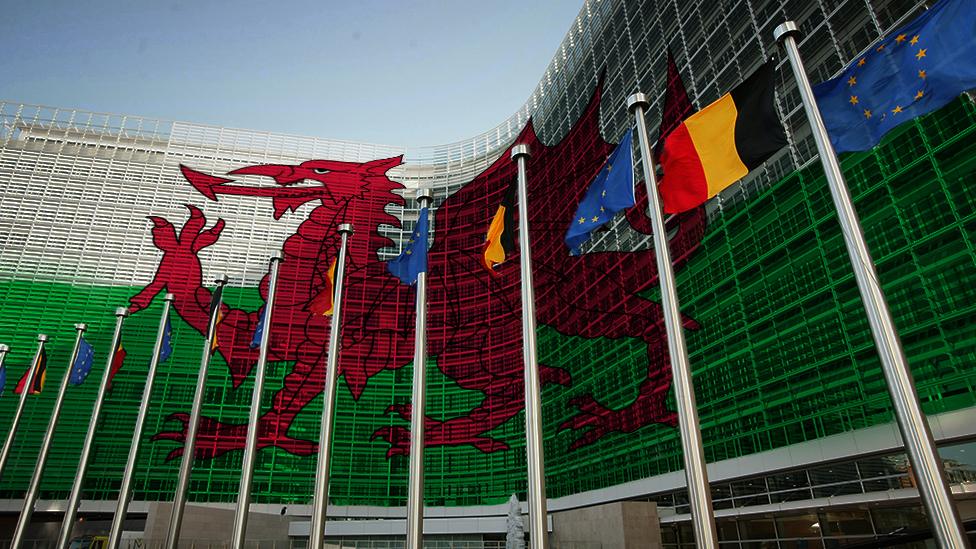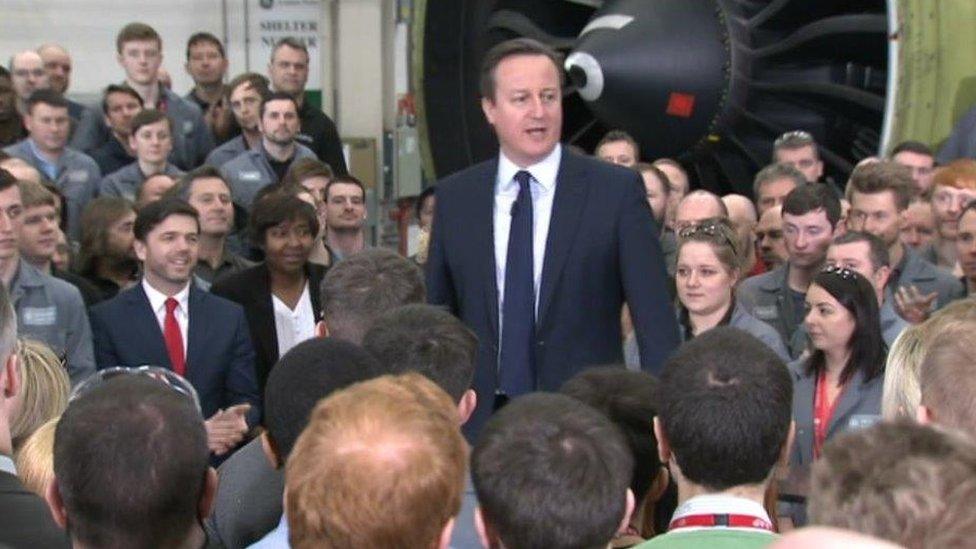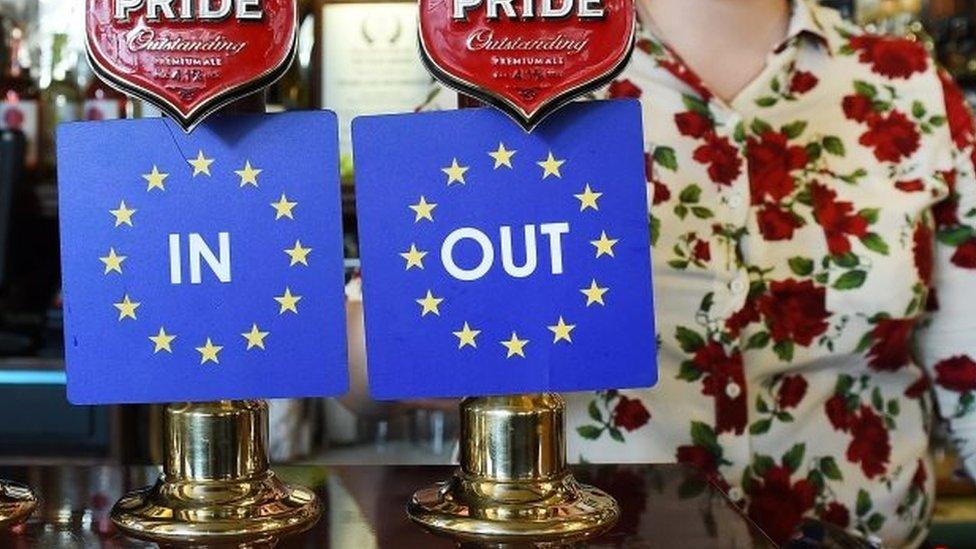Wales benefits £79 per person from being in EU, study says
- Published

Wales benefits from being part of the European Union by about £79 per person each year, a new study has claimed.
The Wales Governance Centre at Cardiff University estimated Wales received about £245m more from the EU than it paid in during 2014.
A spokesman for Vote Leave Cymru said he did not recognise these projections and, if the UK voted to leave, Wales would be financially better off.
Britain Stronger In Europe said the EU was a great bargain for Wales.
The report claimed Wales' position differs substantially from the rest of the UK, with the UK making a net contribution of £151 per person rather than being a net beneficiary.
Ed Poole, one of the report's authors, said this was "primarily due to Wales' receipt of significant funding from the EU's regional and agricultural programmes".

Where do the figures come from?
The UK makes contributions to the EU on a UK basis, so any contribution Wales makes as part of that has to be estimated.
The report makes clear that a different methodology could be used which would come to a lower figure for how much Wales benefits from the union.
This could reduce the net benefit from £245m to about £180m.
However, the authors defended the method they used, saying it is based on a methodology used by the Scottish Government in their annual national accounts publication.
They explain that the publication is National Statistics accredited, meaning it is certified by the UK Statistics Authority as compliant with its Code of Practice for Official Statistics.
The report estimated Wales' proportion of the UK contribution was £414m in 2014.
After this is subtracted from the £658m Wales received from the EU in structural funds and money for agriculture, the report came to a figure of about £245m for how much Wales gets back.
This amounts to about £79 per person.
To come to the contribution figure, academics used a method developed in Scotland. This uses Wales' economic performance to estimate a proportion of the different kinds of contributions the UK makes to the EU.
Wales' share of the UK government's rebate from the EU is included in that, but is calculated in a different way, based on a per capita share of the overall rebate figure.
Under the per capita method the rebate is estimated at £211m, but there is an alternative way of working this out.
Using a method based on Wales' economic performance, described in the report, the rebate would be pegged at £147m.
This then reduces the net benefit for Wales to about £180m.
The academics argued they have kept the per capita measure "for the purposes of comparison and consistency".


A spokesman for Vote Leave Cymru said: "Reports such as these ignore one crucial fact; there is no such thing as European money. It is money that hardworking families have paid in taxes and money which could be better spent locally.
"Even if true, this report calculates the price of Wales' freedom from the anti democratic EU at just £1.50 a week - a real bargain.
"In any case, we do not recognise these projections and if the UK votes to leave the EU on 23 June, Wales will be financially better off.
"The UK currently spends £10bn a year more than it receives in so-called EU funds and Wales would be entitled to its share of that dividend if we vote to leave."
Geraint Talfan Davies, chairman of Wales Stronger In Europe, said: "This report makes it abundantly clear that Wales gets back from Europe more than we contribute - a benefit equivalent to £79 per person.
"This makes a real difference to all our lives - creating jobs, upgrading skills, regenerating communities, enhancing our universities, improving the environment, sustaining agriculture and rural areas and helping the stretched budgets of our local authorities.
"In short, the EU is a great bargain for Wales. But there is no guarantee that we would enjoy these benefits if we vote leave. Wales would almost certainly be out of pocket."
Meanwhile, TUC general secretary Frances O'Grady told the Wales TUC conference a vote to leave the EU would put at risk workers rights to parental leave, equal treatment for agency workers and part-time workers as well as paid annual leave.
Speaking at the event in Llandudno, she said: "Brexit would bring with it huge risks for working people across Wales, not just for jobs, but for many rights at work which are guaranteed by the EU."
- Published16 May 2016

- Published26 February 2016

- Published1 May 2016
